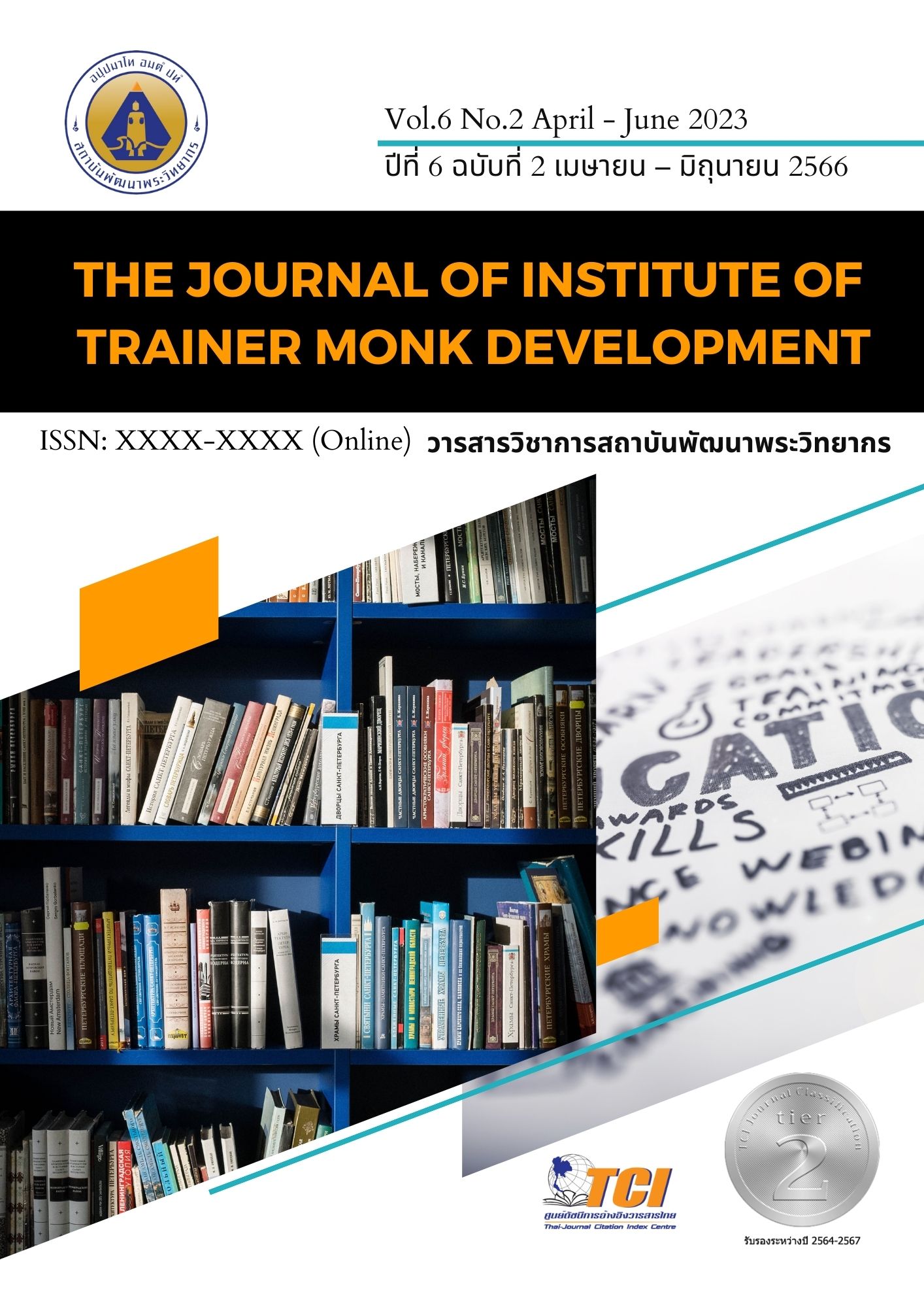Leadership of School Administrators in the Digital Age
Main Article Content
Abstract
This article has objective to study leadership of school administrators in the digital age. This research employed the documentary research methodology. It was found that rapid changes in the digital age have resulted in dramatic changes. to lifestyle behaviors including learning. The world of learning has evolved rapidly thanks to the presence of the Internet and the development of digital technologies. The internet will play a greater role, allowing people in remote areas to access knowledge easily. While learning in a hands-on area is also an important part of developing skills in a variety of dimensions. Nowadays, technology plays a very important role in the education system. It is an indispensable part of helping education develop and grow at scale, which has the advantage of significantly reducing educational opportunity inequality. School administrators need to be leaders in technology to apply in education so that learners have equal access to quality resources and material.
Article Details

This work is licensed under a Creative Commons Attribution-NonCommercial-NoDerivatives 4.0 International License.
บทความที่ได้รับการตีพิมพ์เป็นลิขสิทธิ์ของวารสารวิชาการสถาบันพัฒนาพระวิทยากร
ข้อความที่ปรากฎอยู่ในบทความที่ได้รับการตีพิมพ์ในวารสาร ถือเป็นความรับผิดชอบของผู้เขียนบทความ และข้อคิดเห็นนั้นไม่ถือว่าเป็นทัศนะและความรับผิดชอบของกองบรรณาธิการวารสารวิชาการสถาบันพัฒนาพระวิทยากร
References
ประเวศน์ มหารัตน์สกุล. (2550). ภาวะผู้นํา: ความเป็นไปในสังคมไทยและวิธีการแก้ไขกรุงเทพมหานคร: หมอชาวบ้าน.
มัทนา วังถนอมศักดิ์. (2550). รูปแบบแรงจูง ใจในการปฏิบัติงาน. วิทยานิพนธ์ปรัชญาดุษฎีบัณฑิต สาขาการบริหารการศึกษา. บัณฑิตวิทยาลัย: มหาวิทยาลัยศิลปากร.
มลิวัลย์ ธรรมแสง. (2558). รูปแบบการพัฒนาภาวะผู้น าด้านเทคโนโลยีเพื่อการศึกษาของผู้บริหารสถานศึกษาเฉพาะความพิการ. วารสารบัณฑิตวิทยาลัย มหาวิทยาลัยราชภัฎสวนดุสิต, 11(2): 7-16.
เลอศักดิ์ ตามาและสุมาลี ศรีพุทธรินทร์. (2564). ภาวะผู้นำยุคดิจิทัลของผู้บริหารสถานศึกษาที่ส่งผลต่อการดำเนินงานระบบประกันคุณภาพการศึกษาของสถานศึกษาสังกัดสำนักงานเขตพื้นที่การศึกษามัธยมศึกษาเขต 22 . วารสารรัชดาภาค, (15)(38): 224-240.
สุกัญญา แช่มช้อย. (2561). การบริหารสถานศึกษาในยุคดิจิทัล. กรุงเทพมหานคร: จุฬาลงกรณ์มหาวิทยาลัย.
Anderson, R. E., & Dexter, S. L. (2005). School technology leadership: An empirical investigation of prevalence and effect. Educational Administration Quarterly, (41)(1): 49-82.
Kerdtip, C. (2006). Development model of education technology leadership for school administrators under the office of basic education commission In southern Thailand. Doctoral Dissertation. Thailand: Songkla University.
Nak Ai, N. (2006). The factors of E-Leadership characteristics and Factors affecting E-Leadership effectiveness for basic education principals. Doctoral Dissertation. Bangkok: Srinakharinwirot University.
Polly, D. (2010). Preparing teachers to integrate technology effectively: The case of higher order thinking skills (HOTS). Chapter to appear in S. D'Augustono (Ed.).


